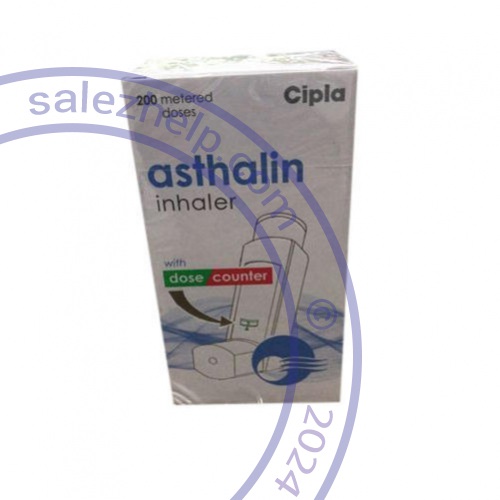Proair Singapore
Proair is a type of medication used to treat or prevent bronchospasm in individuals with reversible obstructive airway disease, like asthma. It's also used to prevent exercise-induced bronchospasm. The active ingredient in Proair is albuterol sulfate, a bronchodilator that works by relaxing muscles in the airways and increasing airflow to the lungs. It's usually administered through an inhaler. Possible side effects include, but are not limited to, headache, dizziness, insomnia, cough, sore throat, and runny nose. It's important to use Proair as prescribed by a healthcare professional.
- 100mcg
1. **What is Proair and what is it used for?**
Proair, also known with its generic name as albuterol, is an inhaler medication used primarily to manage and prevent bronchospasm in individuals diagnosed with reversible obstructive airway disease. It's also used as prophylaxis for exercise-induced breathing problems.
2. **How does Proair work in patients with asthma?**
The main active ingredient in Proair, albuterol, functions as a bronchodilator. It relaxes the muscles around the airways, letting more air pass into and out of the lungs. This relieves symptoms such as wheezing, coughing, chest tightness, and shortness of breath.
3. **What is the correct way to use Proair?**
Proair is an inhalation aerosol. It's typically administered through an inhaler device. The dose and frequency depend on the specific instructions from your healthcare provider. It's paramount that users understand how to properly use their inhaler to ensure the medication's effectiveness.
4. **Are there side effects when using Proair?**
Possible side effects of Proair may include headaches, dizziness, insomnia, throat irritation, runny nose, and muscle pain. Severe reactions are less common but may include chest pain, fast or irregular heartbeats, and symptoms of a severe allergic reaction like rash, swelling, or difficulty breathing.
5. **Is Proair safe for everyone?**
While Proair is generally safe for most people, some individuals should use it with caution or not at all. People with heart disease, high blood pressure, seizures, diabetes, or overactive thyroid, as well as pregnant or breast-feeding individuals, should inform their doctor before starting on Proair.
6. **Can Proair interact with other medications?**
Yes. Some medications might interact with Proair, such as other bronchodilators, beta-blockers, diuretics, antidepressants, or medications for Parkinson’s disease. It's crucial to inform your healthcare professional about all the medications, supplements, and herbal products you're taking.
7. **Can Proair be used in children?**
Yes, but the use in young children should be under adult supervision. It's important to consult a pediatrician for the appropriate dosage and instructions.
8. **Should Proair be taken regularly or only during asthma attacks?**
The usage of Proair can vary depending on the individual's condition. Some may use it regularly while some may only require it as a rescue inhaler during asthma attacks. This should be determined by your healthcare provider based on your specific condition and needs.
9. **What should I do if I miss a dose or take an overdose of Proair?**
If you miss a dose, take it as soon as you remember unless it is near the time for the next dose. In that case, skip the missed dose and continue with your regular schedule. Do not double your dose. If an overdose happens, seek immediate medical attention. Overdosing can cause serious effects such as chest pain, fast or pounding heartbeats, tremors, dry mouth, or unusual changes in mood or behavior.
Always remember that seeking advice from a healthcare professional is crucial when it comes to any medication-related concerns or issues. Self-medication can lead to adverse effects and health risks. Proair, like any other medication, should be used responsibly and only under a doctor's supervision.
What are known local names of the medication?
- Asthalin
- Ventolin HFA
- ProAir RespiClick
- Salbulin
- Salbutamol Inhaler
- Salbutamol Sulfate
- Asthavent
- Respirol
- Airomir
- Salbutamol
- AccuNeb
- Ventolin
- ProAir HFA
- Salamol
- Asmol
- VoSpire ER
- Proventil



